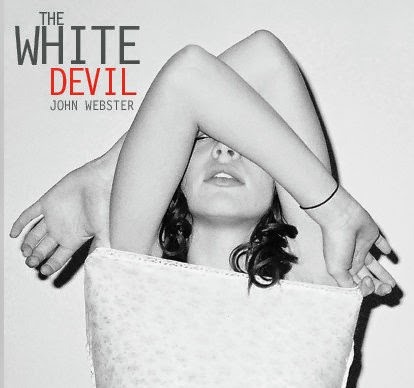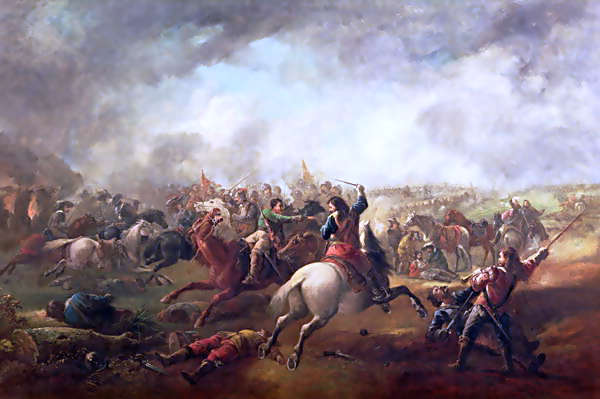Introduction
• Eikonoklastes is a book by John Milton, published October 1649. In it he provides a justification for the execution of Charles I, which had taken place on 30 January 1649.
• By appointment of the Council of State, Milton was assigned to write Eikonoklastes as the Secretary of Foreign Tongues in March 1649.
• Declaring that “I take it on me as a work assigned rather, than by me chosen or affected,” Milton wrote Eikonoklastes as a response to Charles’ Eikon Basilike. Commissioned by the Council of State in March 1649.
Eikon Basilike
• Eikon Basilike , “The King’s Image” was written in defence of King Charles I, who ascended the throne in 1625 subtitled "the Portraiture of His Sacred Majesty in His Solitudes and Sufferings." It purports to be the king's spiritual autobiography. Written in simple, direct, and moving language, it ran into many editions and was translated into several languages.
• It claims to be a private record of the thoughts and prayers of Charles through the last years, months, weeks, days, even hours of his life. Charles is pictured as a monument to piety, conscientiousness, and faith; he is shown as a man who loves his family, a King concerned for the welfare of his people, and a pious Protestant much given to earnest prayer.
• It was circulated shortly after his execution in an effort, as editors Daems and Faith Nelson suggest, “to embed the rhetoric of kingship into the minds of its early modern-readers, despite the physical absence of the king.”
• Charles was executed in January 1649 following disputes and charges from
his parliament, and he was perceived by his English opponents to be a
political tyrant based on his desire for divine authority and kingly rule
• Eikonoklastes primary purpose was to counter Eikon Basilike, therefore the text was written in English as it was intended for an English audience
•
Eikonoklastes aims to shatter the king’s image. With its text title of the Greek word for “iconoclast,” which means “a breaker or destroyer of images”, Eikonoklastes strips Eikon Basilike,
•
The language and style of Eikonoklastes, show that Milton’s intentions were specifically aimed towards demystifying Charles’ political misrepresentations and unveiling his real intentions.
•
Milton employs linguistic methods to persuade his readers while integrating political references and biblical scripture in achieving his goal.
•
Milton attacks Charles I's rhetorical flourishes throughout Eikon Basilike, and he claims that "the whole Book might perhaps be intended a peece of Poetrie".
•
Milton criticises every aspect of Eikon Basilike to the point that when Charles I claims that he was with gentlemen, Milton responds "Gentlemen indeed; the ragged Infantrie of Stewes and Brothels".
The Main Points in Eikonoklastes
•
Milton’s defense of the regicide of Charles the First takes both political and religious angles.
Religious Justifications for the Regicide
•
Responding directly to the Eikon Basilike,Milton stresses repeatedly that service to God and service to the King are not one in the same, that is, service to God could (and indeed, in Charles case did) constitute the removal of the King.
•
Milton’s discourse in effect shatters the icon of the "Godly" ruler from a protestant angle by subjecting the notion of a King's right to rule by divine right to critical interpretation, separating the King from the religious doctrines that justified his reign.
•
Milton’s religious argument is grounded in his protestant ethic: He repeatedly stresses that God’s favor (the supposed instrument of a King’s right to rule) cannot center around one individual but is instead accessible to all.
•
Thus, Milton asserts that Charles' execution was justified in the eyes of God because the King had threatened to trivialize the purity of the Church of England by moving it in the wrong direction that confused the authority of God with the power of the King.
The Radical Politics of a Regicide
•
Milton establishes Parliament, not the King, as the most genuine expression of the collective will of the English nation.
•
His political argument stresses the King’s manipulation of Parliament by only calling it into session for the purposes of requesting wartime appropriations, and the frequency with which he dissolved it when the commons refused to cooperate with his goals.
•
He uses this example to equate Charles’s rule with subjugation for the English people, that is, Charles had as much concern for the people's aims as he did parliament's.
•
Milton shows the reader that Charles’ ruled with an illogical single-mindedness that was antithetical to the kind of religious republic that he, and radicals like him, hoped to create.
•
Milton argues that there is a potential in all monarchical governments for the potential of enslaving a population, which was an argument he previously relied on in his The Tenure of Kings and Magistrates.
•
Milton's view of freedom was not limited to just having the right to property, but to be free from the potential of arbitrary domination by a monarch.
•
Starting in 1649, Milton began to connect his various prose publications with the plan of a future epic to be composed, and Eikonoklastes was one such work.
•
Some critical interpretations highlight the multiple parallels between the actions of Charles I monarchy and Satan's rule in hell found within Paradise Lost. Although, this interpretation is perfectly fine, care must be taken to not simplify ‘Paradise Lost’ into a political category- this is does not examine the deeper subtleties and meanings within the text
•
However, the description of a rise of an antichristian monarchs near the end of Eikonoklastes declares that such individuals rely on an ambiguous language to gain power. Likewise, Milton's Satan relies on the same kind of rhetoric. Likewise, the deviant followers of Charles I are connected to demons in hell who drink and blaspheme
Quotes from Eikonoklastes
•
Milton’s intent is "for their sakes who through want of better custom, simplicity, or want of better teaching, have not more seriously considered kings than in the gaudy name of majesty" to argue against the pious picture of King Charles that has been presented in the recent book, Eikon Basilike.
•
“ inevitably throw us back again into all our past and fulfilled miseries; would force us to fight over again all our tedious wars and put us to another fatal struggling for liberty and life, more dubious than the former."
•
“that our consciences were destined to the same servitude and persecution … under him, or if it should so happen, under his son; who count all protestant churches erroneous”
•
Charles’ death does not, in and of itself, make him a true martyr: "if to die for ‘the testimony of his own conscience’ be enough to make him martyr, what heretic dying for direct blasphemy, as some have done constantly, may not boast a martyrdom?"
•
that people that should seek a king claiming what this man claims, would show themselves to be by nature slaves and arrant beasts—not fit for that liberty which they cried out and bellowed for, but fitter to be led back again into their old servitude like a sort of clamoring and fighting brutes
•
“ know not how to use or possess the liberty which they fought for, but with the fair words and promises of an old exasperated foe are ready to be stroked and tamed again into the wonted and well-pleasing state of their true Norman villeinage, to them best agreeable."
Critical Views
•
The work failed: it is the general view that Milton's work did not succeed, in terms of rebutting the Eikon Basilike
•
However, this book was the first work by Milton to be at all widely read. Public sentiment still supported Charles I, but the tract was able to appeal to a larger audience than many of Milton's previous works.
•
The Act of Oblivion was enacted on 29 August 1660, and Milton was not among those who were listed to suffer the death penalty for their part in Charles I's execution.
•
On the other hand, a proclamation by the king demanded that Eikonoklastes and Defensio pro Populo Anglicano be burned.







